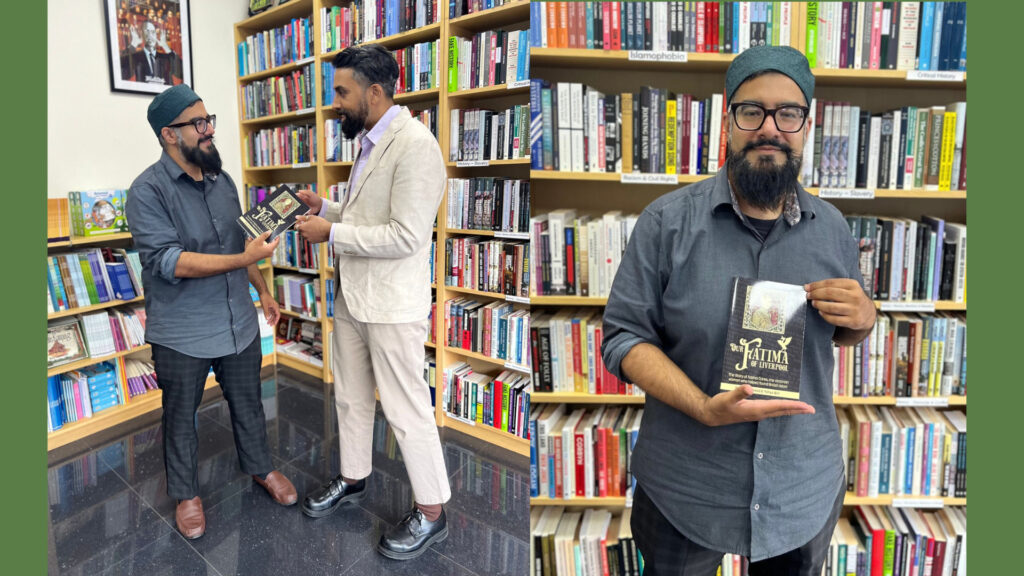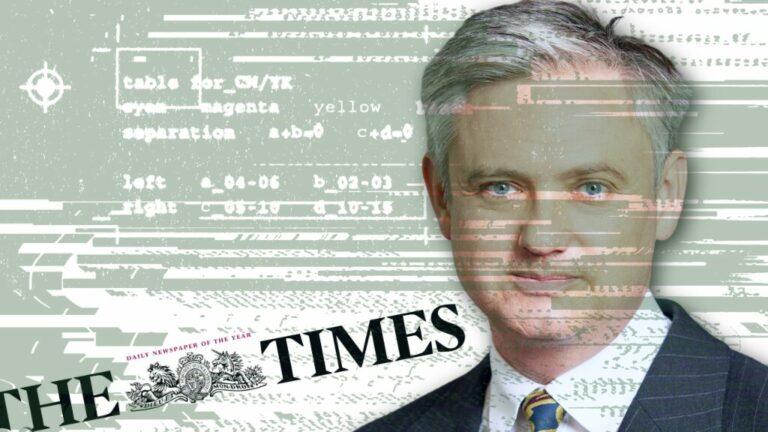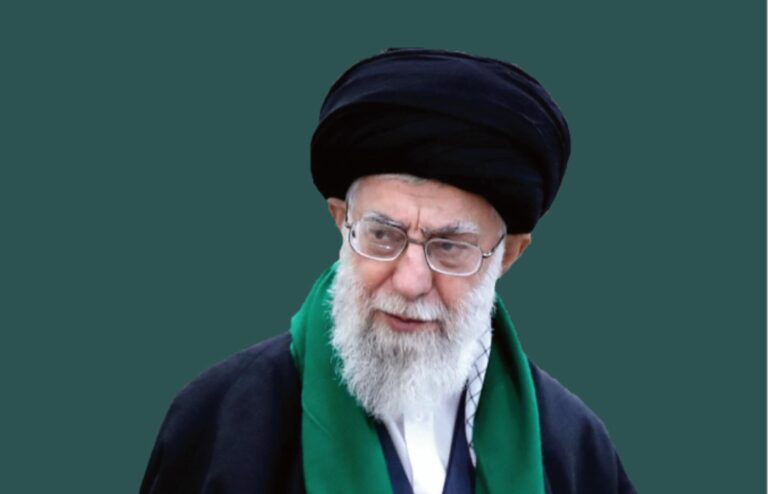IHRC held an author evening with Shaykh Hamid Mahmood to discuss Our Fatima of Liverpool, co-authored with Yahya Birt, on Thursday, 6 July. Purchase Our Fatima of Liverpool from the IHRC Bookshop.
Watch the author evening:
PART 1:
Part 2:
This event was chaired by Talha Ahsan. The conversation has been edited slightly for better readability.
Talha: when people talk about the history if Islam in the UK, people might assume it started with immigration in maybe the 50s and 60s and so on. But during the Victorian times, there was a community of indigenous Muslims. There has always been Muslims [in the UK] from around the world, Muslims coming back and forth in this country, at the capital and the ports. Let’s paint a picture; can you talk about Abdullah Quilliam, who he was, how did he become Muslim, and how did he establish a mosque in Victorian England?
Shaykh Hamid: Islam doesn’t just appear in England with the immigrants. It goes far back; we have the coins from King Offa, the influence and impact through the Crusades, and Elizabethan England. We get to the Victorian period which is much more documented.
Abdullah Quilliam was a solicitor at the time; he was rich and well-known among the community. He fell ill and was advised by his doctors to go to a hot country, and so he decided to travel to Morocco where he was exposed to Muslims and Jews. Having thoroughly read Christianity, he wasn’t satisfied with the religion he was born into. He researched Judaism and Islam, and he ultimately decided [to convert to] Islam. Upon coming back to England, Quilliam did not just want to keep Islam to himself, but rather spread the word of Islam, as we call da’wah or propagation. He goes back to the institutions he was part of before, namely the temperance movement which he used as a platform. The temperance movement was aimed to abolish or decrease alcohol consumption… [and] Liverpool was known as the most drunken city.
Quilliam used this platform to talk about Islam. For the first time in June 1887, he gave his very first lecture on Islam where he spoke about various inventors and people that changed the world, and he moved onto the Prophet Muhammad (peace be upon him). The propagation started in a small room in Vernon Street. That lecture [was attended by] James Hamilton who spoke to Abdullah Quilliam and showed his interest in accepting Islam. Quilliam said that as far as he is aware, he is the only Muslim in England, so they [do not have] witnesses for Hamilton’s shahada, therefore they will make Allah their witness. Hamilton became James Ali Hamilton.
Francis Elizabeth Murray was the secretary of the temperance movement. This is where Quilliam meets Fatima and it is her first exposure to Islam.
Talha: with the phrontistery, I had a look at the offerings and I am impressed with the thought you have put in for the children’s Qur’an studies methods, to engage their imaginations with the Qur’an and teaching it as themes, rather than parroting memorisation – it is really refreshing. Tell us about your school and your education philosophy behind that.
Shaykh Hamid: a point of inspiration from Fatima Elizabeth was her own engagment with the Qur’an. Prior to the madrassah, we were taught that if you want to study the Qur’an and Hadith, it is must to study with a teacher, which is fine when you get to that higher level. But, I think it is important for us to still engage with the Qur’an and for children to directly see what the message of Islam is. If they want to go in deeper, then by all means have a teacher.
The inspiration was Fatima Elizabeth because after she sits in the second lecture delivered by Quilliam, he gives her his own copy of the Qur’an which is written in English by a non-Muslim and the commentary is not friendly towards Islam. As an avid reader and a well-read person, Fatima takes her Qur’an home and her mother, Agnus, asked her what books she had brought home. Francis Elizabeth, as she was known as at the time, replied ‘this is the Muhammadan Bible’. As soon as those words left her mouth, her mother immediately wanted her get rid of it. Fatima responded, how would she know if this is a wicked and evil book if she hasn’t read a single of word it yet. Fatima later describes the translation as the greatest book that was born. A few weeks later, she expresses her interest in converting to Islam to Quilliam. Our engagement with the Our’an at that kind of level and that passion, despite the negative commentary in the translation, her openness [is what] we are inspired by.
We started the school in December 2014 with about 28 students and 5 teachers, aged 5 to 15. We now have around 320 students alhamdulilah. Our aim is quite simple: the philosophy is, how can we create an environment inside this space which will give a flavour to the students of prophetic consciousness. We focus on the mind, body, spirit and the soul, and we encourage open discussions about taboo topics.
On discussing why the school is called phrontistery, Shaykh Hamid said one of the meanings is, ‘a place of thinking, a place of understanding’, and they wanted students to think why they are Muslim and think about the beauty of Islam, not just parrot everything given to them.
Talha and Shaykh Hamid also discussed the importance of learning about the history of Islam in the UK and understanding one’s context and identity, the first mosque in the UK, Fatima Cates’ struggles after embracing Islam, why non-religion is on the rise, the need for Islamic curriculum to be reshaped to fit today’s context, Quilliam’s poetry, and much more.






